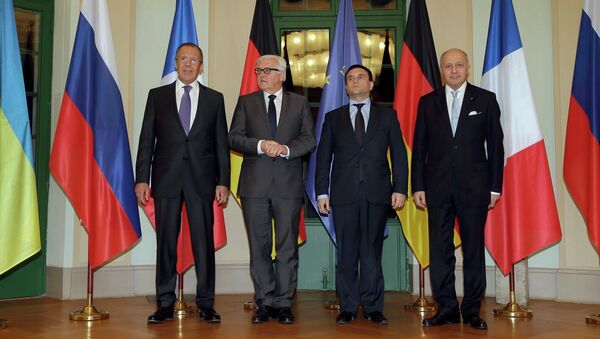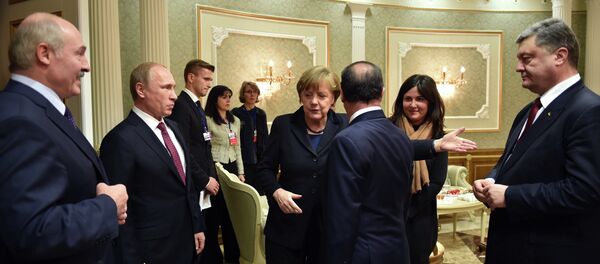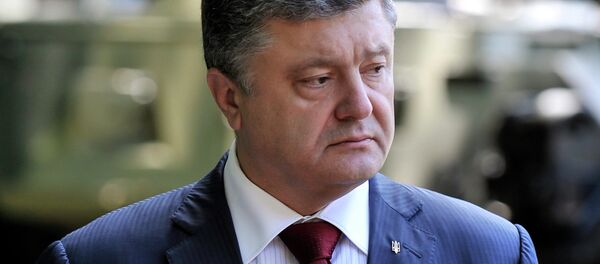The leaders of Ukraine, France, Germany, and Russia held a 13-hour summit in Minsk on Wednesday and early Thursday that resulted in a new political deal aimed at stopping the deadly conflict in eastern Ukraine that has claimed lives of at least 5,300 people since April 2014.
"Currently, in the present context, further sanctions against Russia do not make any sense," Fabius said in an interview with iTele television.
The minister added, though, that the failure of the Minsk talks would have certainly led to toughening sanctions against Russia in order to increase pressure on Moscow over its alleged role in the destabilization of the situation in Ukraine.
The minister added, though, that the failure of the Minsk talks would have certainly led to toughening sanctions against Russia in order to increase pressure on Moscow over its alleged role in the destabilization of the situation in Ukraine.
Earlier in the day, Lithuanian President Dalia Grybauskaite said that discussions on new sanctions were impossible before March, with the EU watching implementation of today's agreement.
John Kerry statement on Minsk and Russian sanctions http://t.co/OJG1jSvlOb (from @StateDept)
— Daniel Sandford (@BBCDanielS) 12 февраля 2015
US Department of State Secretary John Kerry also said that his country stood ready to ease sanctions on Russia once today's agreements are being fully implemented.
The European Union, the United States and other countries imposed several rounds of sanctions against Russia over its alleged role in the Ukrainian conflict. The restrictions target the country's defense, energy and finance sectors, as well as several individuals.
Mogherini: No discussion about further sanctions today only on "positive steps" EU can take to facilitate implementation of Minsk #EUCO
— Open Europe (@OpenEurope) 12 февраля 2015
Last month, EU foreign ministers decided to keep existing sanctions in force until September, but did not impose any new measures.



